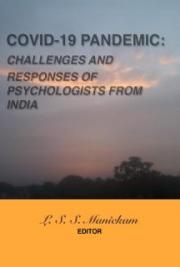existence. It is enough that we must always be speaking of them.
Even if both were not, creatura, of its own essential distinctiveness,
would forever dis- tinguish them anew out of the pleroma.
Everything that discrimination taketh out of the pleroma is a pair of
opposites. To god, therefore, always belongeth the devil.
This inseparability is as close and, as your own life hath made you
see, as indissoluble as the pleroma itself. Thus it is that both stand
very close to the pleroma, in which al opposites are extinguished
and joined.
God and devil are distinguished by the qualities ful ness and
emptiness, generation and destruction. EFFECTIVENESS is
common
to both. Effectiveness joineth them. Effectiveness,
therefore, stahdeth above both; is a god above god, since in its
effect it uniteth ful ness and emptiness.
This is a god whom ye knew not, for mankind forgot it. We name it
by its name ABRAXAS. It is more indefinite stil than god and devil.
That god may be distinguished from it, we name god HELIOS or
Sun. Abraxas is effect. Nothing standeth opposed to it but the
ineffec- tive; hence its effective nature freely unfoldeth itself. The
ineffective is not, therefore resisteth not. Abraxas standeth above
the sun and above the devil. It is improbable probability, unreal
reality. Had the pleroma a being, Abraxas would be its
manifestation. It is the effective itself, not any particular effect, but
effect in general.
It is unreal reality, because it hath no definite effect.
It is also creatura, because it is distinct from the pleroma.
The sun hath a definite effect, and so hath the devil. Wherefore do
they appear to us more effective than indefinite Abraxas.
It is force, duration, change.
The dead now raised a great tumult, for they were Christians.
Sermo III
Like mists arising from a marsh, the dead came near and cried:
Speak further unto us concerning the supreme god.
Hard to know is the deity of Abraxas. Its power is the greatest,
because man perceiveth it not. From the sun he draweth the sum-
mum bonum; from the devil the inftrnum mdlum; but from Abraxas
LIFE, altogether indefinite, the mother of good and evil.
Smal er and weaker life seemeth to be than the summum bonum;
wherefore is it also hard to conceive that Abraxas transcendeth
even the sun in power, who is himself the radiant source of al the
force of life.
Abraxas is the sun, and at the same time the eternal y sucking
gorge of the void, the belittling and dismembering devil.
The power of Abraxas is twofold; but ye see it not, because for your
eyes the warring opposites of this power are extinguished,
What the god-sun speaketh is life.
What the devil speaketh is death.
But Abraxas speaketh that hal owed and accursed word which is
life and death at the same time.
Abraxas begetteth truth and lying, good and evil, light and darkness,
in the same word and in the same act. Wherefore is Abraxas
terrible.
It is splendid as the lion in the instant he striketh down his victim. It
is beautiful as a day of spring. It is the great Pan himself and also
the smal one. It is Priapos.
It is the monster of the under-world,
a thousand-armed polyp,
coiled knot of winged serpents, frenzy.
It is the hermaphrodite of the earliest beginning.
It is the lord of the toads and frogs,
which live in the water and go
up on the land, whose chorus ascendeth
at noon and at midnight.
It is abundance that seeketh union with emptiness.
It is holy begetting.
It is love and love's murder.
It is the saint and his betrayer.
It is the brightest light of day and
the darkest night of madness.
To look upon it, is blindness.
To know it, is sickness.
To worship it, is death.
To fear it, is wisdom.
To resist it not, is redemption.
God dwel eth behind the sun, the devil behind the night What god
bringeth forth out of the light the devil sucketji into the night. But
Abraxas is the world, its becoming and its passing. Upon every gift
that cometh from the god-sun the devil layeth his curse.
Everything that ye entreat from the god-sun begetteth a deed of the
devil.
Everything that ye create with the god-sun giveth effective power to
the devil.
That is terrible Abraxas.
It is the mightiest creature, and in it the creature is afraid of itself. It
is the manifest opposition of creatura to the pleroma and its
nothingness.
It is the son's horror of the mother.
It is the mother's love for the son.
It is the delight of the earth and
the cruelty of the heavens.
Before its countenance man becometh like stone.
Before it there is no question and no reply.
It is the life of creatura.
It is the operation of distinctiveness.
It is the love of man.
It is the speech of man.
It is the appearance and the shadow of man.
It is illusory reality.
Now the dead howled and raged, for they were unperfected.
Sermo IV
The dead fil ed the place murmuring and said:
Tel us of gods and devils, accursed onel
The god-sun is the highest good; the devil is the opposite. Thus
have ye two gods. But there are many high and good things and
many great evils. Among these are two god-devils; the one is the
BURNING ONE, the other the GROWING ONE.
The burning one is EROS, who hath the form of flame. Flame giveth
light because it consumeth.
The growing one is the TREE OF LIFE. It buddeth, as in growing it
heapeth up living stuff.
Eros flameth up and dieth. But the tree of life groweth with slow and
constant increase through unmeasured time.
Good and evil are united in the flame.
Good and evil are united in the increase of the tree. In their divinity
stand life and love opposed.
Innumerable as the host of the stars is the number of gods and
devils.
Each star is a god, and each space that a star fil eth is a devil. But
the empty-ful ness of the whole is the pleroma.
The operation of the whole is Abraxas, to whom only the ineffec-
tive standeth opposed.
Four is the number of the principal gods, as four is the number of
the world's measurements.
One is the beginning, the god-sun.
Two is Eros; for he bindeth twain together and outspreadeth himself
in brightness.
Three is the Tree of Life, for it fil eth space with bodily forms.
Four is the devil, for he openeth al that is closed. Al that is formed
of bodily nature doth he dissolve; he is the destroyer in whom
everything is brought to nothing.
For me, to whom knowledge hath been given of the multiplicity and
diversity of the gods, it is wel . But woe unto you, who replace these
incompatible many by a single god. For in so doing ye beget the
torment which is bred from not understanding, and ye mutilate the
creature whose nature and aim is distinctiveness. How can ye be
true to your own nature when ye try to change the many into one?
What ye do unto the gods is done likewise unto you. Ye al become
equal and thus is your nature maimed.
Equality shal prevail not for god, but only for the sake of man. For
the gods are many, whilst men are few. The gods are mighty and
can endure their manifoldness. For like the stars they abide in
solitude, parted one from the other by immense distances. But men
are weak and cannot endure their manifold nature. Therefore they
dwel together and need communion, that they may bear their sepa-
rateness. For redemption's sake I teach you the rejected truth, for
the sake of which I was rejected.
The multiplicity of the gods corresponded! to the multiplicity of man.
Numberless gods await the human state. Numberless gods have
been men. Man shareth in the nature of the gods. He cometh from
the gods and goeth unto god.
Thus, just as it serveth not to reflect upon the pleroma, it availeth not
to worship the multiplicity of the gods. Least of al availeth it to
worship the first god, the effective abundance and the summum
bonum. By our prayer we can add to it nothing, and from it nothing
take; because the effective void swal oweth al .
The bright gods form the celestial world. It is manifold and infi- nitely
spreading and increasing. The god-sun is the supreme lord of that
world.
The dark gods form the earth-world. They are simple and infinitely
diminishing and declining. The devil is the earth-world's lowest lord,
the moon-spirit, satel ite of the earth, smal er, colder, and more
dead than the earth.
There is no difference between the might of the celestial gods and
those of the earth. The celestial gods magnify, the earth-gods
dimin- ish. Measureless is the movement of both.
Sermo V
The dead mocked and cried: Teach us, fool, of the church and holy
communion.
The world of the gods is made manifest in spirituality and in
sexuality. The celestial ones appear in spirituality, the earthly in
sexuality.
Spirituality conceiveth and embraceth. It is womanlike and therefore
we cal it MATER COELESTIS, the celestial mother. Sexuality
engendereth and createth. It is manlike, and therefore we cal it
PHAIJLOS, the earthly father.
The sexuality of man is more of the earth, the sexuality of woman is
more of the, spirit.
The spirituality of man is more of heaven, it goeth to tie greater.
The spirituality of woman is more of tie earth, it goeth to the smal er.
Lying and devilish is the spirituality of the man which goeth to the
smal er.
Lying and devilish is the spirituality of the woman which goeth to the
greater.
Each must go to its own place.
Man and woman become devils one to the other when they divide
not their spiritual ways, for the nature of creatura is distinctiveness.
The sexuality of man hath an earthward course, the sexuality of
woman a spiritual. Man and woman become devils one to the other
if they distinguish not their sexuality.
Man shal know of the smal er, woman the greater.
Man shal distinguish himself both from spirituality and from
sexuality. He shal cal spirituality Mother, and set her between
heaven and earth. He shal cal sexuality Phal os, and set him be-
tween himself and earth. For the Mother and the Phal os are super-
human daemons which reveal the world of the gods. They are for us
more effective than the gods, because they are closely akin to our
own nature. Should ye not distinguish yourselves from sexuality and
from spirituality, and not regard them as of a nature both above you
and beyond, then are ye delivered over to them as qualities of the
pleroma. Spirituality and sexuality are not your qualities, not things
which ye possess and contain. But they possess and contain you;
for they are powerful daemons, manifestations of the gods, and are,
therefore, things which reach beyond you, existing in themselves.
No man hath a spirituality unto himself, or a sexuality unto himself.
But he standeth under the law of spirituality and of sexuality.
No man, therefore, escapeth these daemons. Ye shal look upon
them as daemons, and as a common task and danger, a common
burden which life hath laid upon you. Thus is life for you also a
common task and danger, as are the gods, and first of al terrible
Abraxas.
Man is weak, therefore is communion indispensable. If your com-
munion be not under the sign of the Mother, then is it under the sign
of the Phal os. No communion is suffering and sickness.
Communion in everything is dismemberment and dissolution.
Distinctiveness leadeth to singleness. Singleness is opposed to
com- munion. But because of man's weakness over against the
gods and daemons and their invincible law is communion needful.
Therefore shal there be as much communion as is needful, not for
man's sake, but because of the gods. The gods force you to
communion. As much as they force you, so much is communion
needed, more is evil.
In communion let every man submit to others, that communion be
maintained; for ye need it.
In singleness the one man shal be superior to the others, that every
man may come to himself and avoid slavery.
In communion there shal be continence.
In singleness there shal be prodigality.
Communion is depth.
Singleness is height.
Right measure in communion purifieth and preserveth.
Right measure in singleness purifieth and increaseth.
Communion giveth us warmth, singleness giveth us light.
Sermo VI
The daemon of sexuality approacheth our soul as a serpent. It is
half human and appeareth as thought-desire.
The daemon of spirituality descendeth into our soul as the white
bird. It is half human and appeareth as desire-thought.
The serpent is an earthy soul, half daemonic, a spirit, and akin to
the spirits of the dead. Thus too, like these, she swarmeth around in
the things of earth, making us either to fear them or pricking us with
intemperate desires. The serpent hath a nature like unto woman.
She seeketh ever the company of the dead who are held by the
spel of the earth, they who found not the way beyond that leadeth to
singleness. The serpent is a whore. She wantoneth with the devil
a n d with evil spirits; a mischievous tyrant and tormentor, ever
seducing to evilest company. The white bird is a half-celestial soul
of man. He bideth with the Mother, from time to time descending-
The bird hath a nature like unto man, and is effective thought. He is
chaste and solitary, a messenger of the Mother. He flieth high
above earth. He commandeth singleness. He bringeth knowledge
from the distant ones who went before and are perfected. He
beareth our word above to the Mother. She intercedeth, she
warneth, but against the gods she hath no power. She is a vessel of
the sun. The serpent goeth below and with her cunning she lameth
the phal ic daemon, or else goadeth him on. She yieldeth up the too
crafty thoughts of the earthy one, those thoughts which creep
through every hole and cleave to al things with desirousness. The
serpent, doubtless, wil eth it not, yet she must be of use to us. She
fleeth our grasp, thus showing us the way, which with our human
wits we could not find.
With disdainful glance the dead spake: Cease this talk of gods and
daemons and souls. At bottom this hath long been known to us.
Sermo VII
Yet when night was come the dead again approached with lamen-
table mien and said: There is yet one matter we forgot to mention.
Teach us about man.
Man is a gateway, through which from the outer world of gods,
daemons, and souls ye pass into the inner world; out of the greater
into the smal er world. Smal and transitory is man. Already is he
behind you, and once again ye find yourselves in endless space, in
the smal er or innermost infinity. At immeasurable distance standeth
one single Star in the zenith.
This is the one god of this one man. This is his world, his pleroma,
his divinity.
In this world is man Abraxas, the creator and the destroyer of his
own world.
This Star is the god and the goal of man.
This is his one guiding god. In him goeth man to his rest. Toward
him goeth the long journey of the soul after death. In him shineth
forth as light al that man bringeth back from the greater world. To
this one god man shal pray.
Prayer increaseth the light of the Star. It casteth a bridge over
death. It prepareth life for the smal er world and assuageth the
hopeless desires of the greater.
When the greater world waxeth cold, burneth the Star.
Between man and his one god there standeth nothing, so long as
man can turn away his eyes from the flaming spectacle of Abraxas.
Man here, god there.
Weakness and nothingness here, there eternal y creative power.
Here nothing but darkness and chil ing moisture.
There whol y sun.
Whereupon the dead were silent and ascended like the smoke
above
the herdsman's fire, who through the night kept watch over his flock.
ANAGRAMMA:
NAHTRIHECCUNDE
GAHINNEVERAHTUNIN
ZEHGESSURKLACH
ZUNNUS.
(Translated by H. G. Baynes)
Glossary
Amplification. Elaboration and clarification of a dream-image by
means of directed association (q.v.) and of paral els from the
human sciences (symbology, mythology, mysticism, folklore, history
of reli- gion, ethnology, etc.).
Anima and Animus. Personification of the feminine nature of a
man's unconscious and the masculine nature of a woman's. This
psychologi- cal bisexuality is a reflection of the biological fact that it
is the larger number of male (or female) genes which is the decisive
factor in the determination of sex. The smal er number of
contrasexual
genes
seems to produce a corresponding
contrasexual character, which usual y re- mains unconscious.
Anima and animus manifest themselves most typical y in
personified form as figures in dreams and fantasies ("dream girl,"
"dream lover"), or in the irrationalities of a man's feeling and a
woman's thinking. As regulators of behavior they are two of the
most influential archetypes ( q.v. ) .
C. G. JUNG: "Every man carries within him the eternal image of
woman, not the image of this or that particular woman, but a defini-
tive feminine image. This image is fundamental y unconscious, an
hereditary factor of primordial origin engraved in the living organic
system of the man, an imprint or 'archetype' [q.v.] of al the ancestral
experiences of the female, a deposit, as it were, of al the
impressions ever made by woman... Since this image is
unconscious, it is al- ways unconsciously projected upon the person
of the beloved, and is one of the chief reasons for passionate
attraction or aversion."
(The Development of Personality, GW 17, p. 198)
"In its primary 'unconscious' form the animus is a compound of
spontaneous, unpremeditated opinions which exercise a powerful
i n - fluence on the woman's emotional life, while the anima is
similarly compounded of feelings which thereafter influence or
distort the man's understanding ('she has turned his head').
Consequently the animus likes to project itself upon 'intel ectuals'
and aH kinds of *heroes,* including tenors, artists, sporting
celebrities, etc. The anima has a predilection for everything that is
unconscious, dark, equivocal, and unrelated in woman, and also for
her vanity, frigidity, helpless- ness, and so forth."
(The Practice of Psychotherapy, CW 16, par. 521)
"... no man can converse with an animus for five minutes without
becoming the victim of his own anima. Anyone who stil had enough
sense of humour to listen objectively to the ensuing dialogue would
be staggered by the vast number of commonplaces, misapplied
truisms, cliches from newspapers and novels, shop-soiled
platitudes of every description interspersed with vulgar abuse and
brain-splitting lack of logic. It is a dialogue which, irrespective of its
participants, is repeated mil ions and mil ions of times in al
languages of the world and always remains essential y the same."
(Aion, CW 9, u, p. 15)
Tie natural function of the animus ( as wel as of the*anima ) is to
remain in [their] place between individual consciousness and the
col ective unconscious [q.v.]; exactly as the persona [q.v.] is a sort of
stratum between the ego-consciousness and die objects of the
external world. The animus and the anima should function as a
bridge, or a door, leading to the images of the col ective
unconscious, as the persona should be a sort of bridge into the
world."
(Unpublished Seminar Notes. "Visions" I, p. 116)
Archetype, C. G. JUNG: "The concept of the archetype ... is derived
from the repeated observation that, for instance, the myths and
fairy- tales of world literature contain definite motifs which crop up
every- where. We meet these same motifs in the fantasies, dreams,
deliria, and delusions of individuals living today. These typical
images and associations are what I cal archetypal ideas. The more
vivid they are, the more they wil be coloured by particularly strong
feeling- tones... They impress, influence, and fascinate us. They
have
their origin in the archetype, which in itself is an
irrepresentable, uncon- scious, pre-existent form that seems to be
part of the inherited struc- ture of the psyche and can therefore
manifest itself spontaneously anywhere, at any time. Because of its
instinctual nature, the arche- type underlies the feeling-toned
complexes [q.v.] and shiares their autonomy." (Civilization in
Transition, CW 10, par. 847)
"Again and again I encounter the mistaken notion that an archetype
is determined in regard to its content, in other words that it is a kind
of unconscious idea (if such an expression be admissible). It is
neces- sary to point out once more that archetypes are not
determined as regards their content, but only as regards their form
and then only to a very limited degree. A primordial image [9.1?.] is
determined as to its content only when it has "become conscious
and is therefore fil ed out with the material of conscious experience.
Its form, however, ... might perhaps be compared to the axial
system of a crystal, which, as it were, preforms the crystal ine
structure in the mother liquid, although it has no material existence
of its own. This first ap- pears according to the specific way in
which the ions and molecules aggregate. The archetype in itself is
empty and purely formal, nothing but a facultas praeformandi, a
possibility of representation which is given a priori. The
representations themselves are not inherited, only file forms, and in
that respect they correspond in every way to the instincts, which are
also determined in form only. The existence of the instincts can no
more be proved than the existence of the arche- types, so long as
they do not manifest themselves concretely." ( The Archetypes and
the Col ective Unconscious, CW 9, i, pp. 79 f.) "... it seems to me
probable that the real nature of the archetype is not capable of
being made conscious, that it is transcendent, on which account I
cal it psychoid [qr.t?.].*
( The Structure and Dynamics of the Psyche, CW 8, p. 213)
Association. The linking of ideas, perceptions, etc. according to
simi- larity, coexistence, opposition, and causal dependence. Free
associa- tion in Freudian dream in







